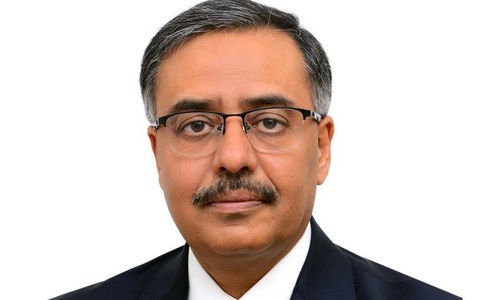ISLAMABAD: The recent Pakistan-India crisis eased significantly on Saturday as high commissioners of both countries returned to their places of posting to resume their diplomatic work and New Delhi claimed to have “achieved its objectives”.
High commissioners Sohail Mahmood and Ajay Bisaria returned to New Delhi and Islamabad, respectively, 11 days after the tensions between their countries peaked with Indian aircraft intruding into Pakistani airspace on Feb 26 and claiming to have hit alleged terror bases.
Take a look: Truth about Pulwama will be buried if citizens don't hold the Modi government accountable
The crisis had started after the Feb 14 bombing of a bus belonging to the Central Reserve Police Force, an Indian security force, in Pulwama (Occupied Kashmir) in which over 44 Indian security personnel were killed. Delhi called back HC Bisaria on Feb 15 for consultations, whereas HC Mahmood was asked by the Foreign Office to return to Islamabad on Feb 18.
Tensions began to defuse after intervention by influential world capitals when they saw the escalation rapidly moving on a dangerous track.
High commissioners left their places of posting following LoC standoff
On a day the Pakistan Air Force bombed an open space across Line of Control (LoC) to demonstrate its will, capability and resolve to respond to Indian aggression and later downed two Indian fighter jets, and Indian Army further turned up the heat by intensifying shelling along the LoC targeting civilians in addition to, according to Pakistani authorities, planning a missile attack on Pakistan with BrahMos cruise missiles, the diplomatic efforts stepped into top gear to prevent the situation from aggravating further. The United States, China, Saudi Arabia and the European Union all claimed to have contributed to de-escalation.
India, after the initiation of high level diplomacy, shared with Pakistan a dossier on Pulwama attack, containing what it claimed to be proof of banned outfit Jasih-e-Mohammad’s involvement in the incident although it had turned down an earlier offer by Prime Minister Imran Khan for Pakistan’s cooperation in investigations. “If you have any actionable intelligence that a Pakistani was involved, give that information to us. I guarantee that I will take action. We won’t take this action because we feel pressured, we’ll do this because such persons would be enemies of Pakistan,” PM Khan had said on Feb 19 while pledging punishment for the guilty. His offer had come exactly a week before the crisis peaked.
The sharing of the dossier was the first indication of flexibility in India’s position. Islamabad on that occasion announced the release of Indian Air Force pilot Abhinandan, who had been captured after the downing of his aircraft on Feb 27.
Later, Pakistan unilaterally took the initiative of announcing the return of its high commissioner to Delhi on March 5, besides reaffirming its commitment to continuing negotiations on proposed Kartarpur Corridor agreement and resuming military hotline communication between the operations directorates at the level of directors general. India took four days to reciprocate and on Friday night announced that its high commissioner Bisaria too would be returning to Pakistan.
Pakistan maintained its ascendency in military sphere throughout the crisis. The only area of weakness with respect to the country was its narrative on its commitment to act against militant organisations. The National Security Committee that met on February 21 had directed law enforcement agencies to expedite ground action against proscribed groups and Jamaat-ud-Dawa and its charity wing Falah-i-Insaaniat were downgraded from the list of under observation entities to banned category. The action on proscribed groups was attributed to the process at the Financial Action Task Force.
The return of the high commissioners marks the resumption of direct contacts at the highest level of the high commissions of the two countries in each other’s capitals.
Talking to HC Mahmood prior to his return, Foreign Minister Shah Mahmood Qureshi had emphasised direct contacts with India. Better relations between India and Pakistan would ensure regional peace and stability, Mr Qureshi had told him.
Indian Ministry of External Affairs spokesman Raveesh Kumar, in a statement issued from Delhi on Saturday, said: “Our non-military counter terrorism strike of 26 February achieved the intended objective. It has demonstrated our firm resolve to take decisive action against cross-border terrorism.”
Experts believe that India could not have closed the crisis while accepting failure of the dangerous mission it undertook though it suffered massive military setbacks. Therefore, this claim of attainment of objectives, irrespective of it being contrary to ground realities, means India has finally drawn a line under the latest episode.
“If Pakistan claims to be a “Naya Pakistan with nayi soch”, it should show “naya action” against terrorist groups and terror infrastructure on its soil and end cross border terrorism in support of its claims,” the Indian spokesman said.
Published in Dawn, March 10th, 2019















































